mobile Ansicht, to the English Version tap the flag


- seit 1979 Autonome Region Spaniens
- Eigenbezeichnungen:
– Baskisch: Euskadi
– Spanisch: País Vasco
– Französisch: Pays Basque
• Flagge
• historische und andere Flaggen
• Bedeutung/Ursprung der Flagge
• Wappen
• historische Wappen
• Bedeutung/Ursprung des Wappens
• Die Baskischen Gebiete "Euskal Herria"
• Landkarte der autonomen Regionen Spaniens
• Zahlen und Fakten
• Geschichte
• Ursprung des Landesnamens
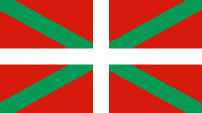
Flagge des Baskenlands,
Seitenverhältnis = 13:25,
Quelle, nach: Flags of the World






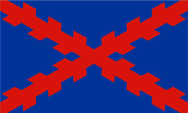
18.-19. Jhd.,
Flagge der Herrschaft Biskaya,
Quelle, nach: Flags of the World



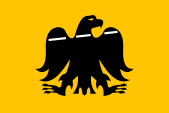
"Arrano Beltza",
Der Schwarze Adler,
Seitenverhältnis = 2:3,
Quelle, nach: Wikipedia (DE)




Die Flagge des Baskenlandes ist einfarbig rot mit einem weißen Georgskreuz und einem grünen Andreaskreuz. Das Rot steht für das während des Freiheitskampfes vergossene Blut, Grün symbolisiert die Heilige Eiche von Guernica und das weiße Kreuz steht für den katholischen Glauben. Die Flagge wird "Ikkurina" genannt und sie wird seit 1894 verwendet. Offiziell eingeführt wurde sie am 08.10.1936 und war bis September 1937 gültig. Danach, unter der Herrschaft des Generals Franco, war sie verboten. Nach Francos Tod (20.11.1975) wurde der Gebrauch ab dem 21.09.1976 nicht mehr bestraft und dem 19.01.1977 offiziell erlaubt, am 18.12.1978 wurde die Flagge wieder offiziell eingeführt und am 22.12.1979 im Zusammenhang mit dem Autonomiestatut für das Baskenland übernommen. Die Farben der Flagge sind im "Art. 3 Abs. 1979 des Organgesetzes 18/12 vom Dezember 1980 über das Autonomiestatut des Baskenlandes" niedergelegt, zuletzt geändert am 10.10.2005. Sie werden folgendermaßen angegeben: Grün = Pantone 347, Rot = Pantone 485. Flaggen mit einem grünen Andraskreuz tauchten schon sehr früh in der Geschichte der Basken auf. Die Grafschaft Bizkaia nahm zuerst eine rote Flagge an, das weiße Kreuz erscheint im Wappen von Bizkaia, ebenso wie die Heilige Eiche. Eine weitere wichtige Flagge der Basken ist der "Arrano Beltza", der Schwarze Adler auf goldenem Grund. Er geht auf das Siegel von König Sancho III. zurück und wird häufig asymmetrisch dargestellt. Die Asymmetrie wird meist durch eine schräge goldene oder weiße Linie im oberen Bereich des Adlers angedeutet oder verstärkt. Jede Baskische Provinz (in Spanien) oder Region (in Frankreich) hat eine eigene Flagge. In Frankreich sind diese Flaggen jedoch nicht offiziell. Frankreich gliedert sich nicht (mehr) in historische Regionen sondern in willkürlich festgelegte Departements, die keine eigenen Flaggen haben.
Quelle: Wikipedia (ES),
Wikipedia (DE),
Flags of the World,
Volker Preuß

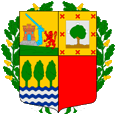
seit 1986,
Wappen des Baskenlands,
Quelle, nach: Wikipedia (ES)

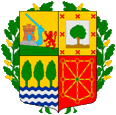
1936–1937, 1979–1986,
Wappen des Baskenlands,
Quelle, nach: Wikipedia (ES)

Das heutige Wappen des Baskenlands wurde am 02.11.1978 eingeführt. Es zeigt einen gevierteilten Schild. In Feld 1 eine mit einem Schwert bewaffnete Burg die einen roten Löwen abwehrt (Araba), in Feld 2 die Heilige Eiche von Guernica, dahinter ein weißes Kreuz, golden umrandet mit acht kleinen roten Diagonalkreuzen (Bizkaia), in Feld 3 blaue und weiße Wellenlinien und drei Bäume (Gipuzkoa). Das Feld 4 ist einfarbig rot. Es steht für Nafarroa (Navarra). Bis 1986 war in diesem Feld die komplette Heraldik von Nafarroa zu sehen, jedoch intervenierte die Regierung dieser Region im Jahre 1982 gegen die Verwendung ihrer Symbolik. Hinter dem Schild ein Kranz aus Eichenzweigen der von grünen und weißen Bändern zusammengehalten wird.
Quelle: Wikipedia (ES),
Volker Preuß

Die Regionen in denen Basken leben, 1.) in Spanien: Baskenland, Navarra, 2.) in Frankreich: Niedernavarra, Soule und Labourd werden von den Basken zu dem Begriff "Euskal Herria" zusammengefasst.
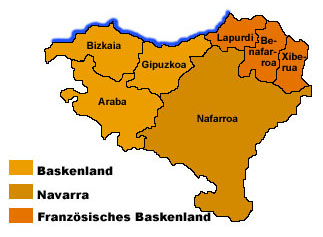
Landkarte/Map: Volker Preuß
Nafarroa (span. Navarra):
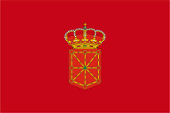
Navarra,
Autonome Region Spaniens,
(mehr Info? → hier klicken)
Bizkaia (span. Vizcaya):
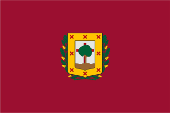
Biscaya,
Provinz des Baskenlandes,
2.217 km², 1.149.344 Ew./inh. (2022),
Haupstadt: Bilbo (Bilbao),
Quelle, nach: Wikipedia (ES)
Gipuzkoa (span. Guipúzcoa):
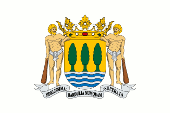
Gipuzkoa,
Provinz des Baskenlandes,
1.980 km², 724.418 Ew./inh. (2022),
Haupstadt: Donostia (San Sebastian),
Quelle, nach: HansenBCN, Public domain, via Wikimedia Commons
Araba (span. Álava):
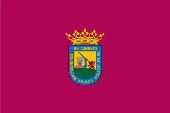
Álava,
Provinz des Baskenlandes,
3.032 km², 334.412 Ew./inh. (2022),
Haupstadt: Vitoria (Gasteiz),
Quelle, nach: Wikipedia (ES)
Lapurdi (frz. Labourd):
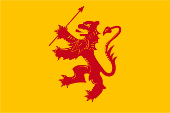
Labourd,
Baskische Region in Frankreich,
858 km², 205.000 Ew./inh.,
Haupstadt: Ustaritz,
Quelle, nach: Wikipedia (FR)
Benafarroa (frz. Basse-Navarre):
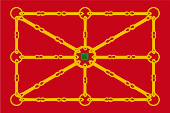
Niedernavarra,
Baskische Region in Frankreich,
1.323 km², 31.750 Ew./inh.
Haupstadt: Saint-Jean-Pied-de-Port,
Quelle, nach: Wikipedia (ES)
Xiberua (frz. Soule):
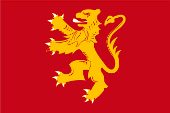
Soule,
Baskische Region in Frankreich,
785 km², 15.000 Ew./inh.
Haupstadt: Mauléon-Licharre (Maule),
Quelle, nach: Wikipedia (ES)

Die autonomen Regionen Spaniens:
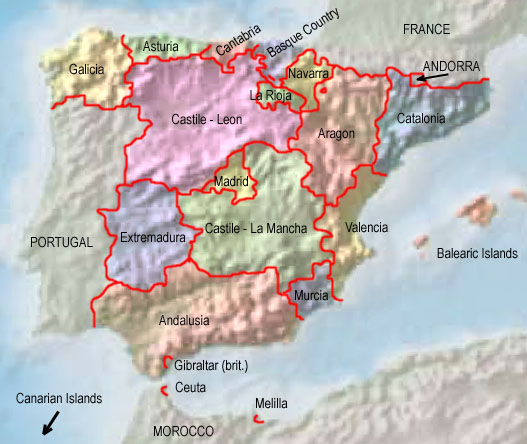
Quelle/Source: Freeware, University of Texas Libraries, modyfied by: Volker Preuß

Fläche: 7.234 km²
Einwohner: 2.222.164 (2023), meist Basken
Bevölkerungsdichte: 307 Ew./km²
Hauptstadt: Gasteiz (Vitoria), 249.176 Ew. (2018)
Amtssprachen: Spanisch (Kastilisch), Baskisch (in drei regionalen Dialekten)
Währung: spanische (Euro-)Währung
Zeitzone: MEZ
Quelle: Wikipedia (EN)

Antike · Besiedlung durch den iberischen Stamm der Vasconen
ca. 600 v.Chr. · Einwanderung von Kelten, die Vasconen werden durch Vermischung zu Keltiberern, den heutigen Basken
218–201 v.Chr. · Zweiter Punischer Krieg, das Römische Reich erwirbt die Besitzungen Karthagos in Iberien, Unterwerfung der ganzen Iberischen Halbinsel bis zum Jahre 19 v.Chr., im Baskenland teilweise römische Besiedlung, teilweise Romanisierung
74 v.Chr. · Gründung der Stadt Pompeiopolis (Pamplona) durch den römischen Feldherrn Sextus Pompeius
ca. 400 n.Chr. · Völkerwanderung, Durchzug von Alanen, sowie germanischer Sweben und Westgoten, die Basken können sich ihre Unabhängigkeit bewahren
580 · der Westgotenkönig Leovigild besiegt und unterwirft die Basken, das heutige Baskenland wird Teil des Westgotenreiches, Leovigild gründet die Stadt Vitoria ("Sieg") neben der westgotischen Burg Gasteiz, viele Basken fliehen über die Pyrenäen und siedeln in der fränkischen Gascogne (daher der Name)
678–680 · der Westgotenkönig Wamba besiegt und unterwirft die Basken in der Gascogne
711–714 · Vernichtung des Westgotenreichs durch von Nordafrika kommende Araber, die Westgoten ziehen sich nach Asturien, Kantabrien und in das Baskenland zurück, es gelingt den Arabern jedoch nicht Asturien, Kantabrien und das Baskenland zu erobern
778 · das Frankenreich unter Karl dem Großen erobert das Pyrenäenvorland, Errichtung der Spanischen Mark, jedoch Niederlage gegen die Basken im Tal von Ronceval (Roncesvalles)
795–812 · Wiedererrichtung der Spanischen Mark durch Karl den Großen und Ludwig den Frommen, dem Sohn von Karl dem Großen
812 · Befreiung der Stadt Pamplona von den Arabern durch die Basken, Errichtung des Königreichs Pamplona
816–851 · Herrschaft von Iñigo Arista über Pamplona
827 · erfolgloser Aufstand der Basken gegen das expandierende Frankenreich, Pamplona wird als Grafschaft Teil der Spanischen Mark
905 · der zum Grafen von Navarra (Grafschaft Pamplona) gewählte Sancho Garcia ernennt sich zum König von Navarra und macht sich vom Fränkischen Reich unabhängig
905–925 · König Sancho von Navarra befreit die Gebiete nördlich des Flusses Ebro, Teile des heutigen Aragonien und Teile Kastiliens von den Arabern
925 · Tod von König Sancho
1001–1035 · Regierungszeit von Sancho III. (der Ältere), nach seinem Tod wird das Königreich unter seine vier Söhne aufgeteilt: Garcia erhält Alt-Navarra und Biscaya, Ferdinand erhält Teile Kastiliens, Ramiro erhält Aragonien, Gonzales erhält Tudela
1076 · König Sancho Ramiro von Aragonien stürzt König Sancho IV. von Navarra und vereinigt beide Reiche
1134 · Tod von König Alfons I., Navarra wird wieder ein selbstständiges Königreich
1200 · Gebietsabtretungen an Kastilien
1234 · Tod von König Sancho VII. von Navarra, damit stibt die Dynastie Sancho in Navarra aus, das Erbe geht an Thibaut von Champagne
1285 · Johanna von Champagne, die letzte Erbin des Hauses, heiratet König Philipp IV. (den Schönen) von Frankreich aus dem Hause der Kapetinger
1328 · Tod von König Ludwig X., Aussterben der Hauptlinie der Kapetinger, Johanna II. die Tochter Ludwigs X. erbt Navarra, ihr Gemahl Philipp III. Graf von Evreux wird damit König von Navarra
1332 · Gebietsabtretungen an Kastilien
1375–1379 · Krieg Navarras (unter Karl II. [dem Bösen], Sohn von Philipp III.), Wales und Aragoniens gegen Frankreich und Kastilien, Navarra wird verwüstet
1379 · Gebietsabtretungen an Kastilien
Damit wurden zwischen 1035 und 1379 die damaligen Grafschaften und heutigen Baskischen Provinzen Araba, Biskaya und Gipuzkoa an Kastilien abgetreten, sie verbleiben bis 1979 Provinzen Kastiliens/Spaniens. Navarra – als damaliger Staat Baskischer Nation – bleibt bestehen (für weitere Geschichtsdaten zu Navarra ← hier klicken). Die Basken in den Provinzen behielten stets besondere Freiheiten, sogenannte "Fueros", die ihre Unabhängigkeit gegenüber Kastilien/Spanien zum Ausdruck brachten.
1805 · die Fueros werden eingeschränkt
1832 · die Fueros sollen ganz abgeschafft werden
1833 · die bis dato in Spanien bestehenden Teilkönigreiche und Regionen werden in Provinzen aufgeteilt, die Herrschaft Biscaya in die Provinzen Vizcaya (Bilbao), Guipúzcoa (San Sebastián) und Álava (Vitoria)
1833 · Baskischer Aufstand gegen die Spanische Regierung, die Basken schließen sich im Bürgerkrieg (Karlistenkriege) dem Lager von Don Carlos an
1840 · Friedensvertrag von Vergara, die Fueros werden bestätigt
1841 · die Fueros werden erneut eingeschränkt
1843 · Spanien gewährt Navarra und den Baskischen Provinzen Zollfreiheit
1844 · die Verfassung von vor 1805 wird wiederhergestellt, jedoch von Spanien zunehmend missachtet
1872–1876 · Baskischer Aufstand gegen die Spanische Regierung, wird niedergeschlagen
1876 · die Fueros werden erneut und besonders eingeschränkt
05.10.1936 · Bildung einer "Autonomen Region Baskenland" in den Provinzen Biskaya und Gipuzkoa, die baskische Provinz Araba kommt im Bürgerkrieg unter den Einfluss der Truppen des Generals Franco
19.06.1937 · Bilbao wird von den Truppen des Generals Franco erobert
23.10.1937 · das gesamte Baskenland wird von den Truppen Francos erobert, die Autonomie endet
1959 · Gründung der ETA (Euzkadi Ta Askatasuna)
20.11.1975 · Tod von General Francisco Franco
1978 · neue Verfassung, Spanien wird parlamentarische konstitutionelle Monarchie
22.12.1979 · das Baskenland erhält das Autonomiestatut innerhalb Spaniens (unter Zusammenfassung der Provinzen Vizcaya, Guipúzcoa und Álava), Gründung der "Autonomen Gemeinschaft Baskenland", die ETA lehnt das Statut ab und verlangt die Unabhängigkeit
Quelle: Wikipedia (ES),
World Statesmen,
RetroBib Retrobibliothek,
Volker Preuß

Der Name "Baskenland" geht logischerweise auf das Volk der Basken zurück, welches in der Antike "Vasconen" genannt wurde. Die Basken selber nennen sich "Euskaldunak" und das Baskenland "Euskadi". Die Regionen in denen Basken leben, 1.) in Spanien: Baskenland, Navarra, 2.) in Frankreich: Niedernavarra, Soule und Labourd (in der Gascogne) werden von den Basken zu dem Begriff "Euskal Herria" zusammengefasst. Das Französische Baskenland wird "Iparralde", das Spanische Baskengebiet (Autonome Gemeinschaft Baskenland und Autonome Gemeinschaft Navarra) wird "Hegoalde" genannt.
Quelle: Wikipedia (ED),
Volker Preuß


![]()





















